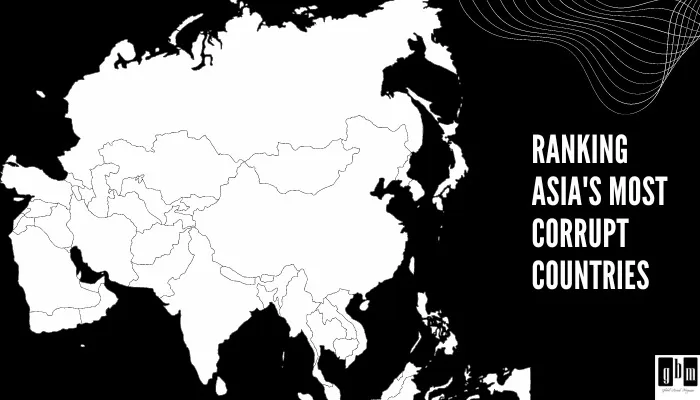Reports and Insights
The Corruption Index of 2022 – Asia’s Most Corrupt Countries

The Transparency International 2022 Corruption Perceptions Index (CPI) released earlier this year indicates a fourth consecutive year of stagnating corruption levels across the region. The report reveals that leaders in the region have ignored anti-corruption efforts, instead emphasizing economic recovery at the expense of other priorities. Furthermore, governments have maintained or even expanded restrictions on civic space and basic freedoms imposed during the pandemic, increasing concerns over authoritarianism.
Ilham Mohamed, the Asia Regional Advisor of Transparency International, expressed concern that corruption is worsening in some of the world’s most populous countries. Governments are also restricting basic rights and freedoms that allow people to hold those in power accountable. Inclusive growth must come with efforts to curb corruption, and public voices must be heard with the upcoming 2023 elections. Governments across Asia Pacific must recommit to stopping corruption.
Highlights
The CPI ranks 180 countries and territories based on their perceived levels of public sector corruption, on a scale of zero (highly corrupt) to 100 (very clean). The Asia Pacific average has remained constant at 45 for four years, and over 70% of countries rank below 50. New Zealand (87), Singapore (83), Hong Kong (76), and Australia (75) lead the region, while Afghanistan (24), Cambodia (24), Myanmar (23), and North Korea (17) are the lowest in the region. Singapore (83) and Mongolia (33) are at historic lows this year. While many countries have stagnated, countries in Asia Pacific made up nearly half of the world’s significant improvers on the CPI since 2017.
South Korea (63), Vietnam (42), and the Maldives (40) were among the significant improvers. In contrast, Malaysia (47), Mongolia (33), and Pakistan (27) declined over this time. Governments across Asia Pacific have claimed they will tackle corruption, but few have taken concrete action, leaving the situation dire. Pervasive corruption and crackdowns on civic space are the root causes.
For instance, Malaysia has been declining for years as it struggles with grand corruption in the wake of the monumental 1MDB and other scandals implicating multiple prime ministers and high-level officials. India, the largest democracy in the world, continues to consolidate power and limit the public’s ability to demand accountability. Massive protests erupted in Sri Lanka due to financial mismanagement by the government, with Sri Lankans demanding anti-corruption reforms. Meanwhile, Australia is showing positive signs this year, with the government passing historic legislation for a new National Anti-Corruption Commission. Nevertheless, more comprehensive whistleblower protection laws, caps and real-time disclosure on political donations, greater transparency, and longer cooling-off periods are necessary.
In parts of the Pacific, governments have interfered in elections, denying the public the opportunity to have their voices heard. Papua New Guinea’s August election was its worst ever amid numerous irregularities, stolen ballot boxes, and even bouts of violence. In the Solomon Islands, frustration with reported collusion between politicians and foreign companies boiled over into violent civil unrest late last year. The government’s decision to delay elections scheduled for 2023 has raised further concerns over the abuse of executive power.
Transparency International calls on governments to prioritize anti-corruption commitments, reinforcing checks and balances, upholding rights to information, and limiting private influence to finally rid the world of corruption – and the instability it brings. Governments must open up space to include the public in decision-making, from activists and business owners to marginalized communities and young people. In democratic societies, people can raise their voices to help root out corruption and demand a safer world for all.
Here is how the countries of the Asian subcontinent stack up against each other

Picture courtesy- Transparency International





















































